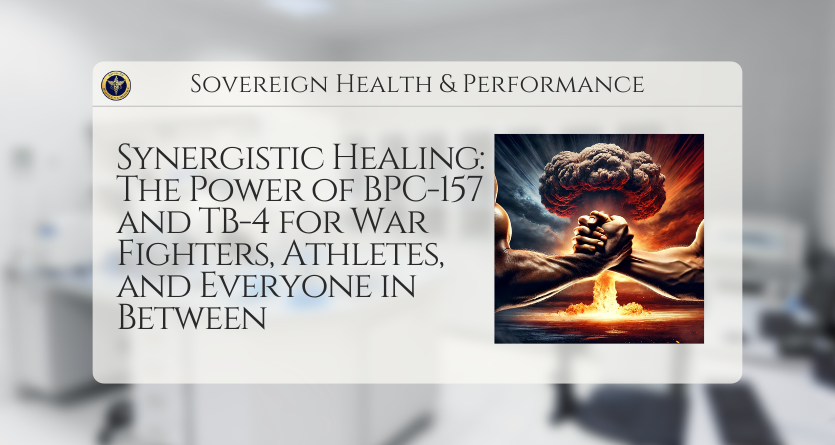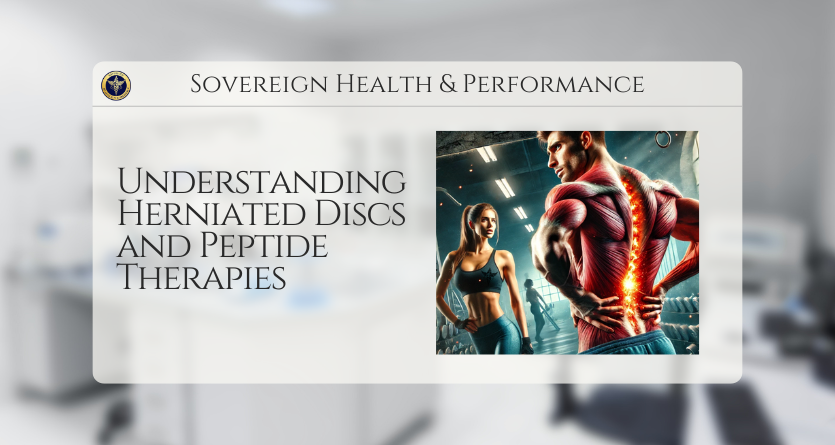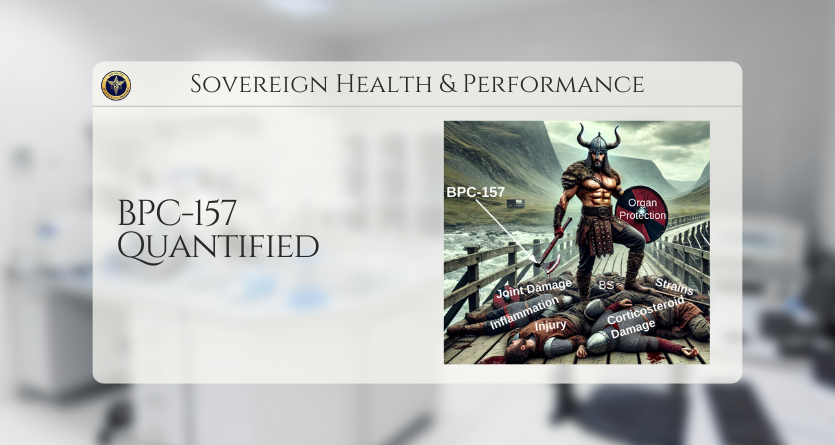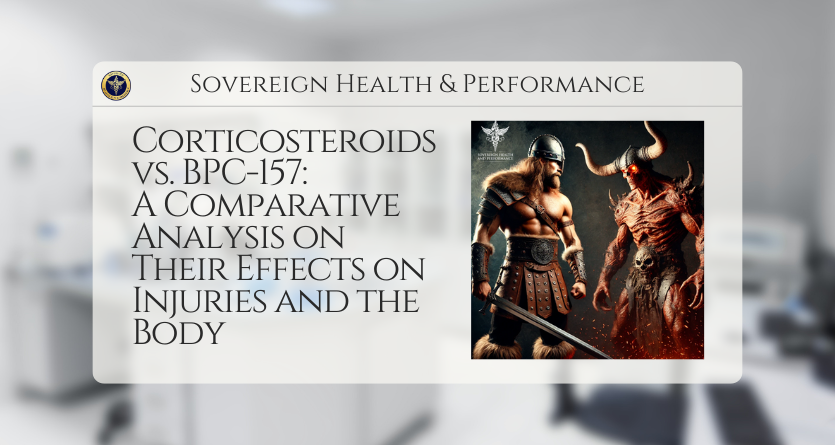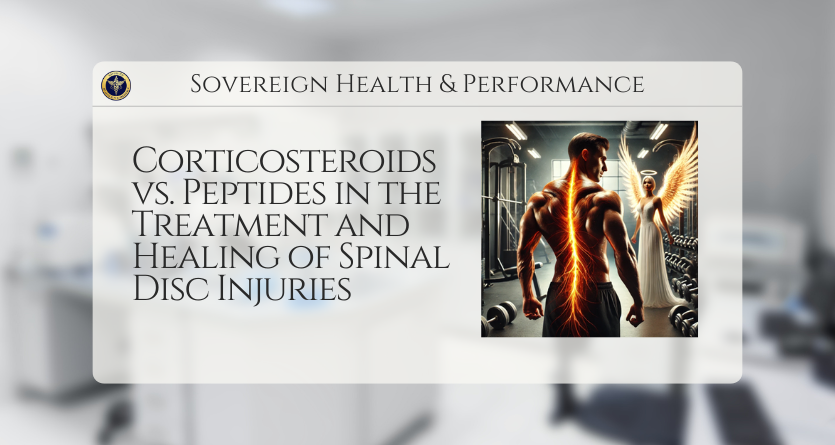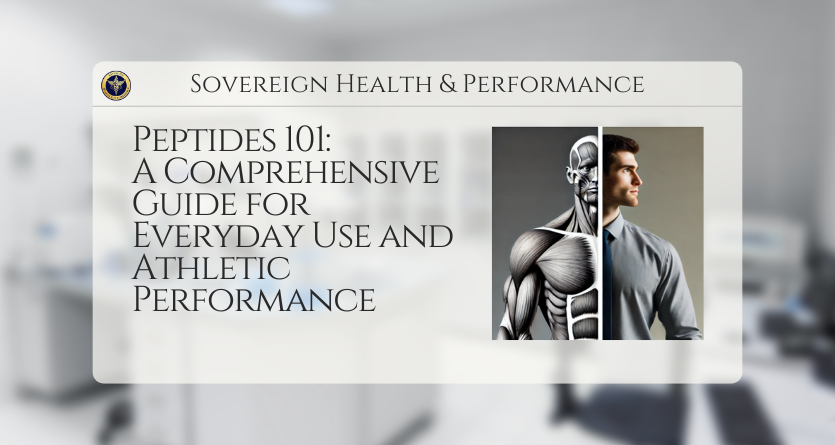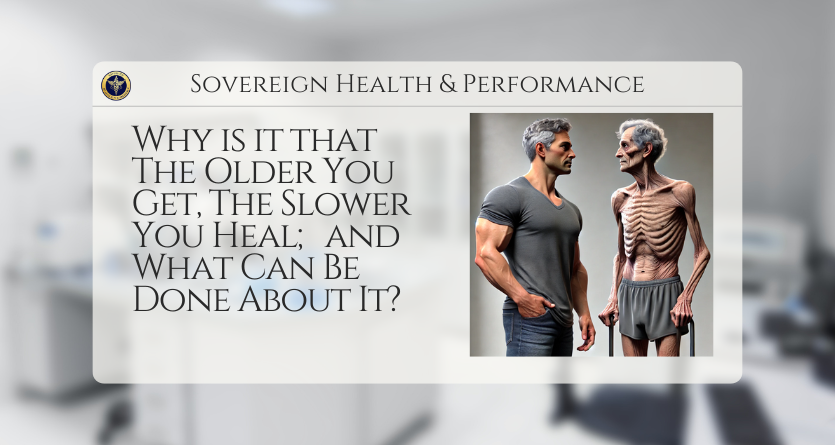09Feb
09Feb
Understanding Herniated Discs and Peptide Therapies
Understanding Herniated Discs and Peptide Therapies
Executive Summary
Herniated discs, commonly referred to as slipped or ruptured discs, occur when the soft, gel-like center of a spinal disc pushes through a tear in the outer ring, often compressing nearby nerves. This leads to...
09Feb
BPC-157 Quantified
BPC-157 Quantified
BPC-157, a synthetic peptide derived from a protein in the stomach, has been studied extensively for its potential benefits in promoting healing and recovery, particularly in wound healing, tissue repair, and inflammation reduction. While most research has been conducted in animal models, several...
09Feb
Corticosteroids vs. BPC-157: A Comparative Analysis on Their Effects on Injuries and the Body
Corticosteroids vs. BPC-157: A Comparative Analysis on Their Effects on Injuries and the Body
When it comes to managing injuries, particularly those involving inflammation and tissue damage, two different classes of compounds have gained significant attention: corticosteroids and the peptide BPC-157. Corticosteroids have been...
09Feb
Corticosteroids vs. Peptides in the Treatment and Healing of Spinal Disc Injuries: A Comparative Analysis with References.
Corticosteroids vs. Peptides in the Treatment and Healing of Spinal Disc Injuries: A Comparative Analysis with References.
Abstract
Spinal disc injuries, including herniated discs, are common sources of back pain and disability. Traditional treatments often involve corticosteroids to reduce inflammation and manage pain....
09Feb
The Superiority of Injectable Peptides Over Oral Formulations
The Superiority of Injectable Peptides Over Oral Formulations
Peptides have gained significant attention in the field of medicine and sports performance for their ability to promote healing, enhance recovery, and improve various physiological functions. Among the various methods of administration, injectable peptides are often...
09Feb
Peptides 101: A Comprehensive Guide for Everyday Use and Athletic Performance
Peptides 101: A Comprehensive Guide for Everyday Use and Athletic Performance
What Are Peptides?
Peptides are short chains of amino acids, the building blocks of proteins, which play crucial roles in nearly all biological processes. Unlike larger proteins, peptides are small enough to...
09Feb
Why is it that The Older You Get, The Slower You Heal; and What Can Be Done About It?
Why is it that The Older You Get, The Slower You Heal; and What Can Be Done About It?
Executive Summary
As individuals age, their ability to heal declines due to several biological factors, including reduced cellular regeneration, a weakened immune system, and diminished blood...
09Feb
Types of Tennis Elbow Injuries and Peptide Impact
Types of Tennis Elbow Injuries and Peptide Impact
Tennis elbow, or lateral epicondylitis, is a condition caused by inflammation or degeneration of the tendons attached to the lateral epicondyle of the elbow. It results from repetitive strain or overuse, typically involving motions like gripping...
09Feb


